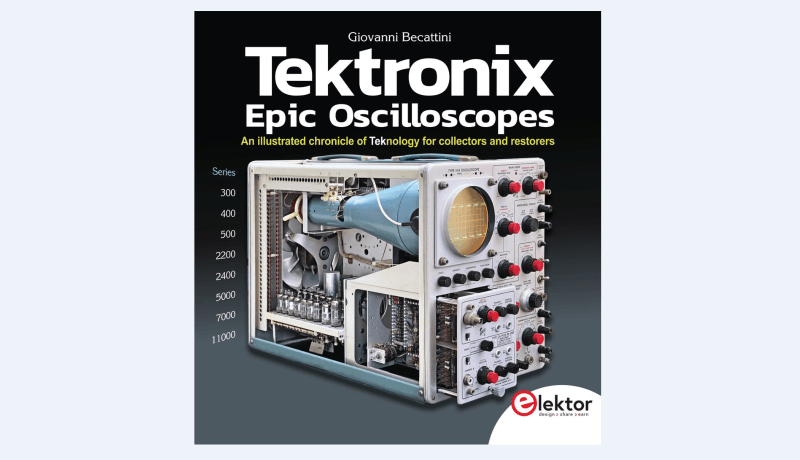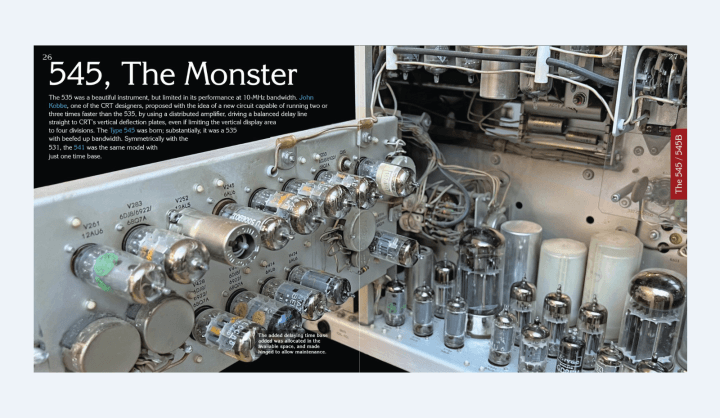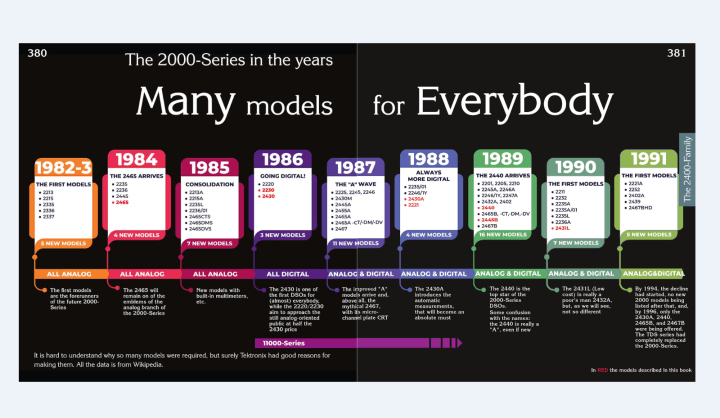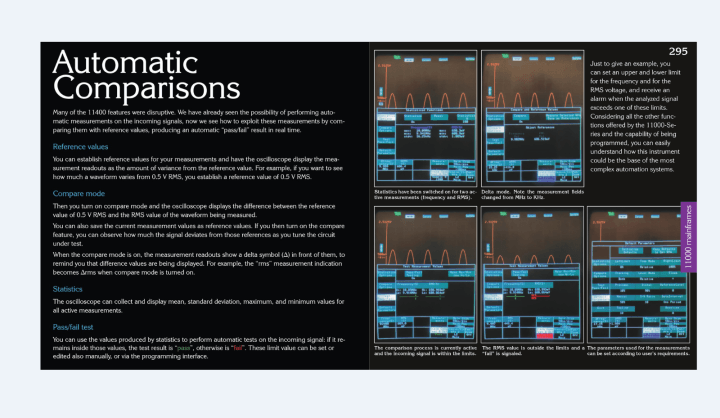Tektronix Epic Oscilloscopes
on

Few companies have shaped the world of measurement technology and electronics as much as Danaher and Tektronix. With “Tektronix Epic Oscilloscopes,” a book is now available that seeks to present the history of the Tektronix oscilloscope from its tube-based beginnings to just before the introduction of the TDS series in a visually sophisticated way.
The author Giovanni Becattini can draw on a rich fund of measuring instruments that are available in his private collection.
The visually very appealing design of the textbook would also pass for an art book in terms of the quality of the printing. Becattini begins his considerations with the completely tube-based 500 series.
In addition to historical reflections on the role of the various measuring devices presented, the book contains excellent pictures that seek to preserve the unique charm of tube electronics for the next generation.

Based on the Becattini collection already mentioned in the introduction, the work enriches the presentation of the (lovable) oscilloscope dinosaurs with both anecdotes and reports from the field, which make it much easier to keep the devices alive.
From Ceramic Strips to Printed Circuit Board
After experimenting with and contemplating the tube-based classics, Becattini turned his attention to the 400 series. His story of how a Tektronix engineer visiting IBM provided the impetus for the Tektronix 435A is almost legendary and truly heartwarming.
Besides talking about the dimensions – after all, the oscilloscope had to fit under one of the airplane seats used at the time – Becattini also addresses the topic of component selection in detail. In addition to thoughts on the gold-plated circuit boards of the time, the reader can also look forward to a presentation of certain components that have newly become available on the market, which Tektronix used in the 400 series to increase the performance parameters of the oscilloscopes.
The importance of the series – the 465 and 475 are particularly relevant – is still highly significant today in terms of the concepts, which is why the historical review also helps to improve interaction with modern devices.
Welcome to the World of Mainframe Oscilloscope
In a surprising number of companies today, you can still find “mainframe systems” from Tektronix. In the context of “Tektronix Epic Oscilloscopes”, however, these are not computers, but “expandable oscilloscopes” – the 7000 series is particularly well-known here, which, in addition to a 1-GHz analog oscilloscope, can also accommodate a wide variety of component testers and even spectrum analyzer plug-in units (and still does so in laboratories today).
Besides a discussion of the mechanical and other elements used, Becattini provides a detailed list of particularly interesting plug-in units in this section. Due to the modular architecture mentioned in the introduction to this section, the plug-in units are sometimes even more interesting than the mainframes used as “carriers”.
The era of modular oscilloscopes saw the introduction of the 11000 series, initially known as the 7K-Plus – especially in its further generations known as CSAxxx, these are devices that can still be found in many laboratories today.
Becattini succeeds here in capturing the magic of these early digital storage oscilloscopes in a fascinating way. In addition to a detailed review - including a mention of the HP 1980, which caused a shock at Tektronix – the reader can look forward to excellently prepared screenshots and even thoughts on how to make screen recordings of the oldies with modern technology.

2400s to the End
The last part of this work then turns to the 2400 series: These are again portable and non-modular oscilloscopes that were on the market until the introduction of the TDS series and are still very much in demand on the second-hand market today.
Becattini uses a two-part approach for the presentation: The first chapter discusses the various analog oscilloscopes, while the second chapter deals with the digital memory variants.
This most comprehensive part of “Tektronix Epic Oscilloscopes” provides an overall picture of the innovations that Danaher and Tektronix have packed into these devices. Here too, comprehensive repair reports help to avoid having to start from scratch when diagnosing problems in-house.

An Ideal Gift Book
Giovanni Becattini has succeeded in producing an excellent educational book that is unparalleled in the electronics book market in many respects. Both the excellent print quality and the fascinating and detailed content make this book an ideal gift. Moreover, as Kane said: “He who controls the past, commands the future. He who commands the future, conquers the past.”
Anyone studying the development of Tektronix oscilloscopes in the pre-TDS era will be well equipped to understand the “modern trends” in the metrology market now being driven by other companies.
Translation: Jörg Strakmuth






Discussion (0 comments)